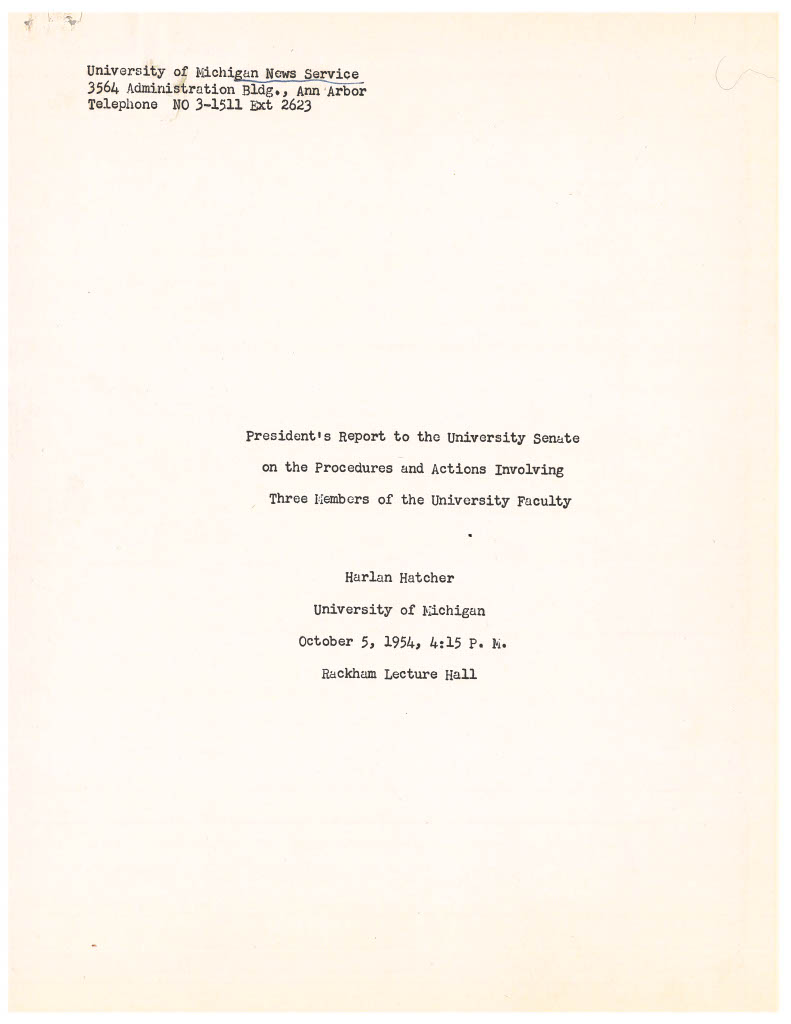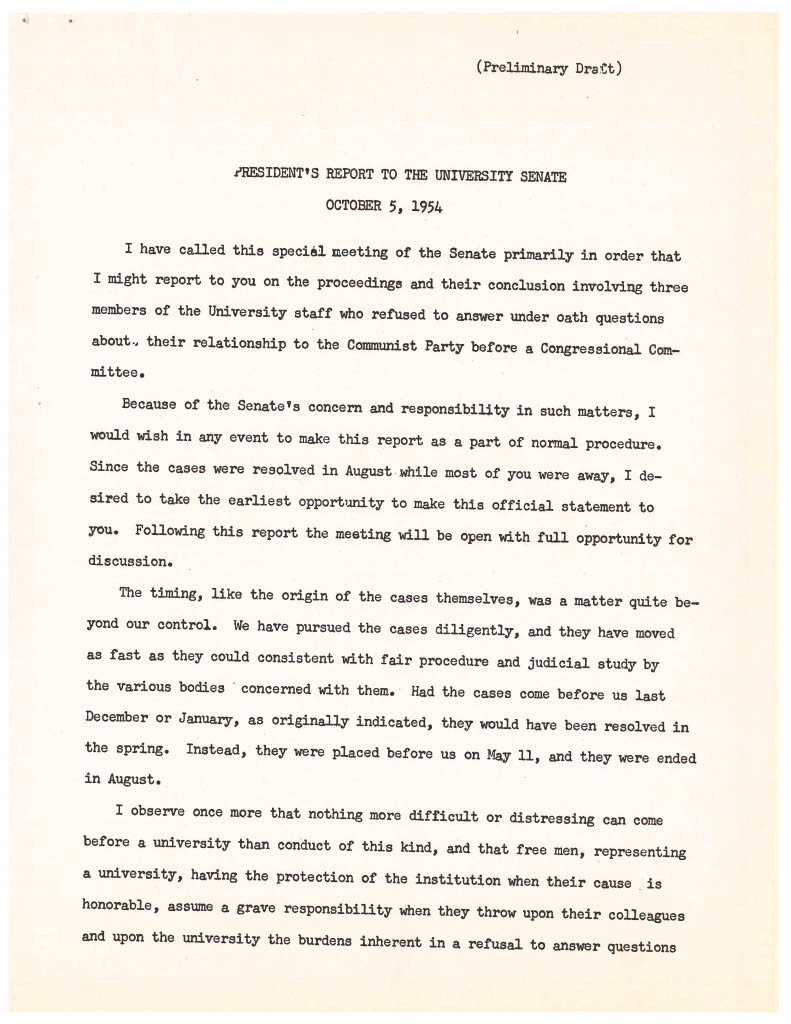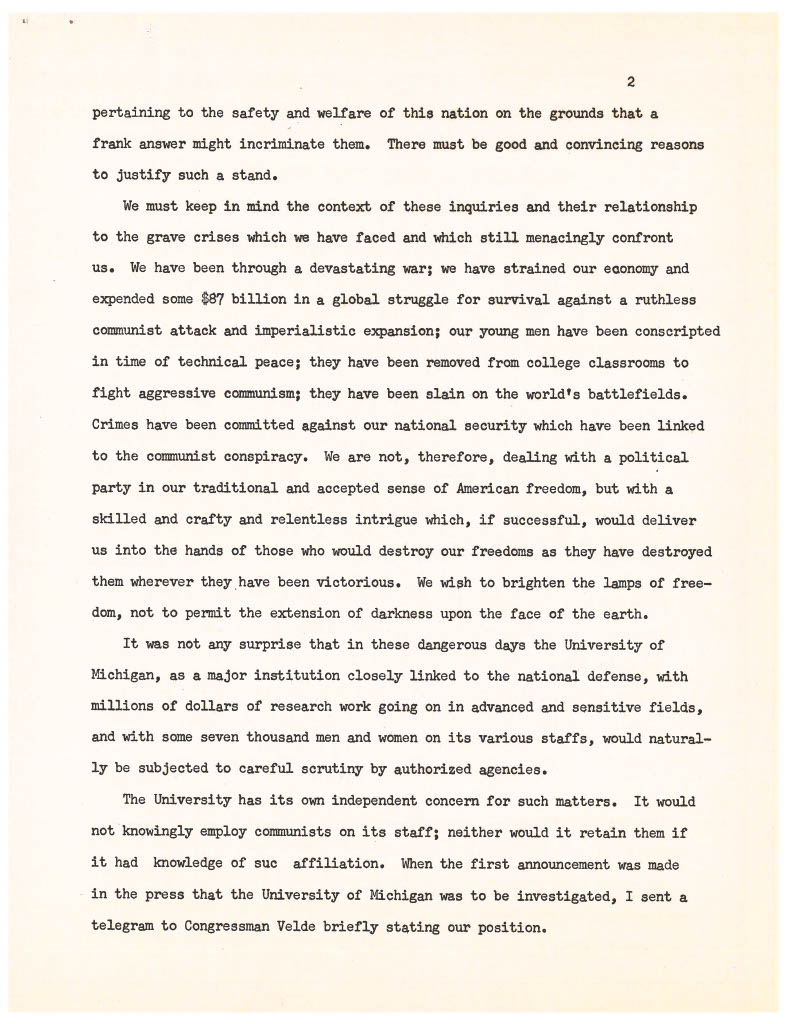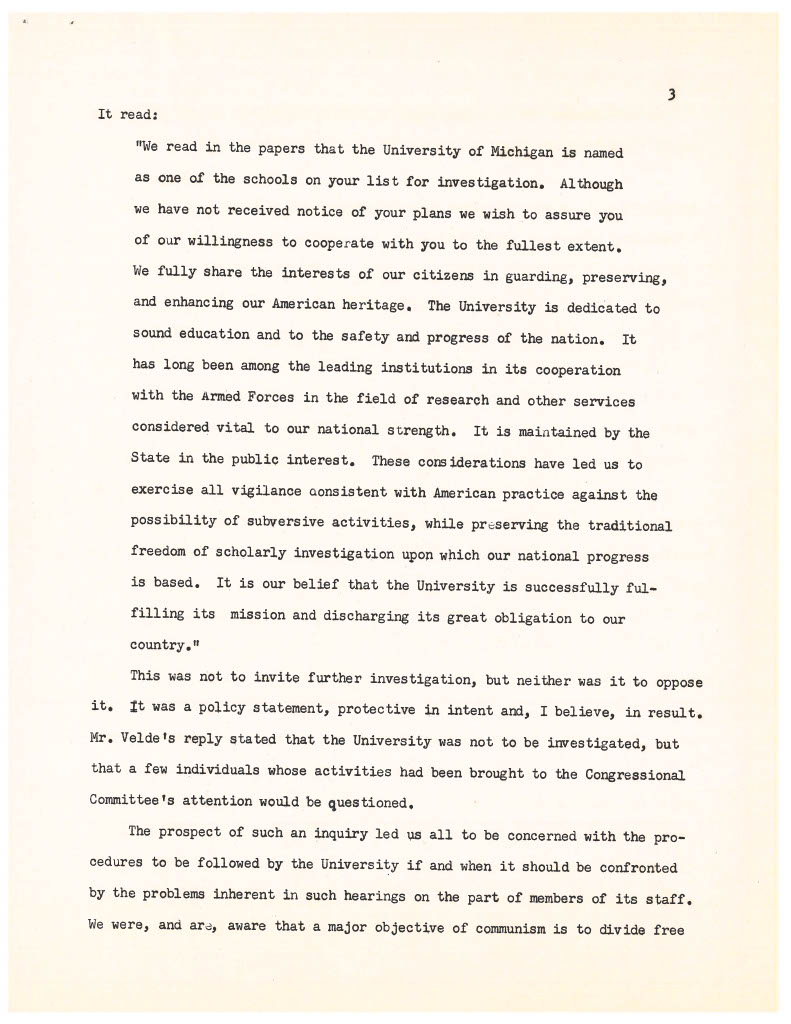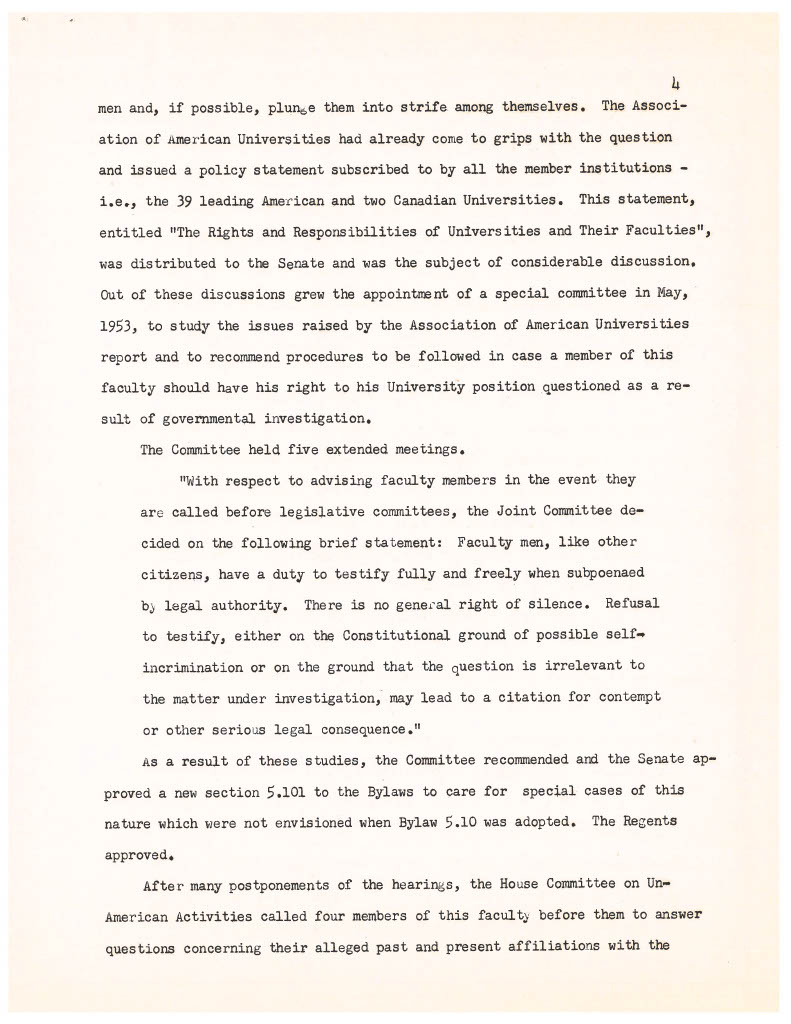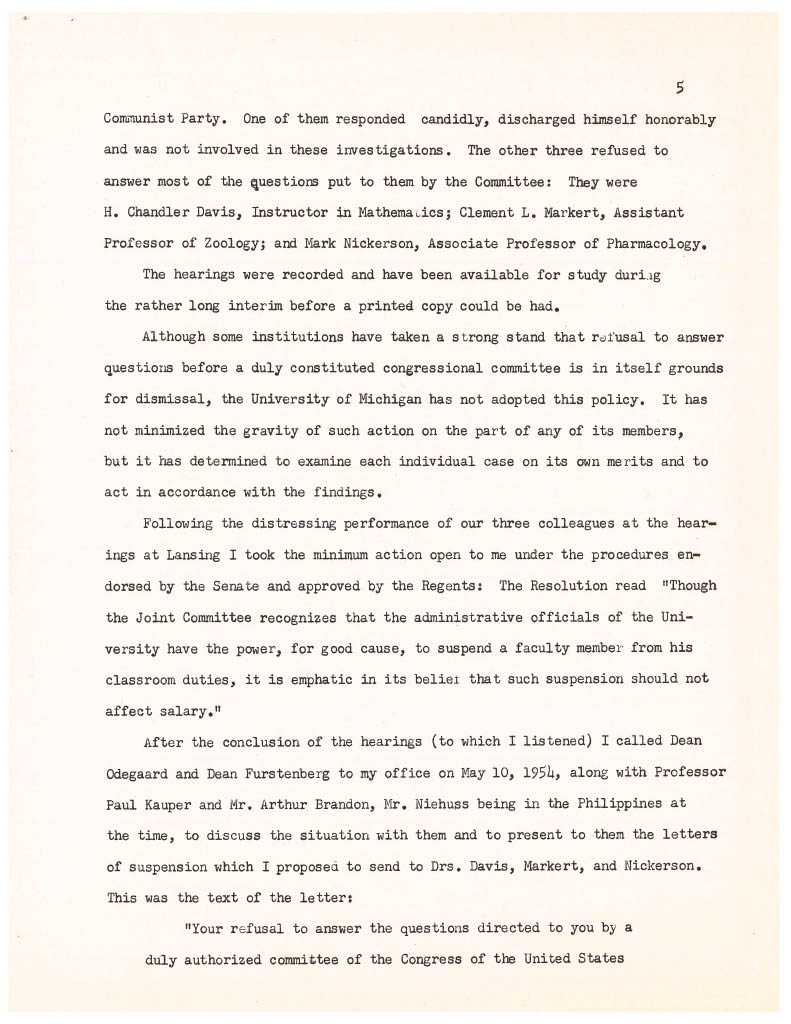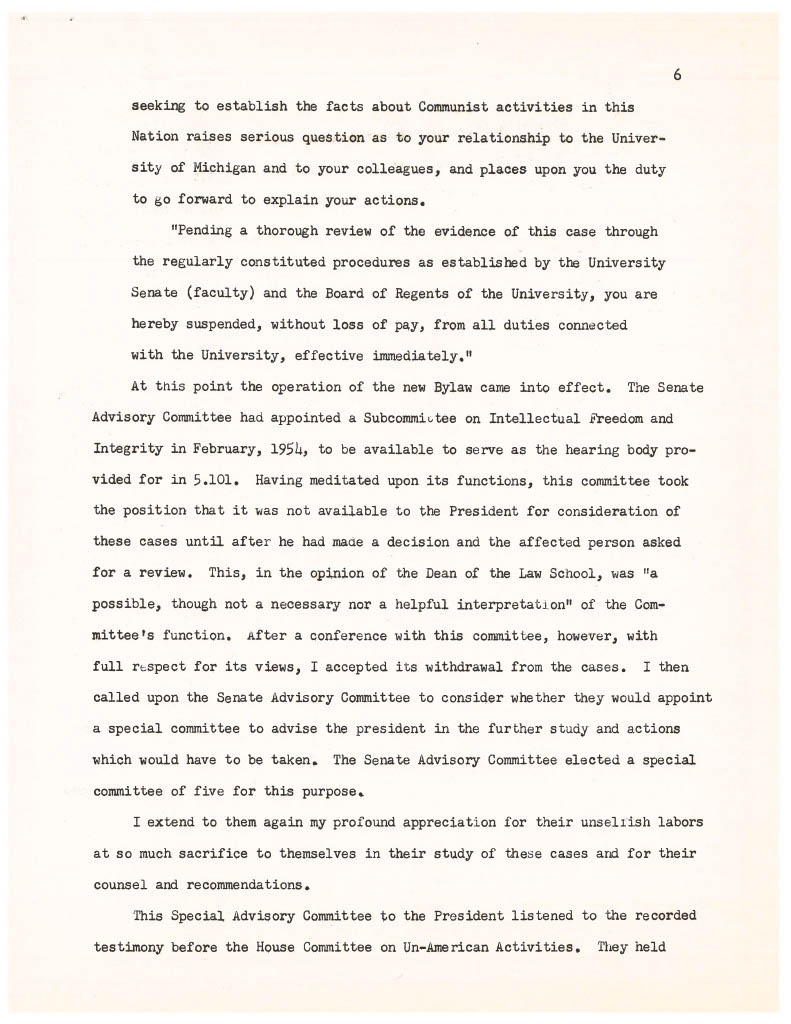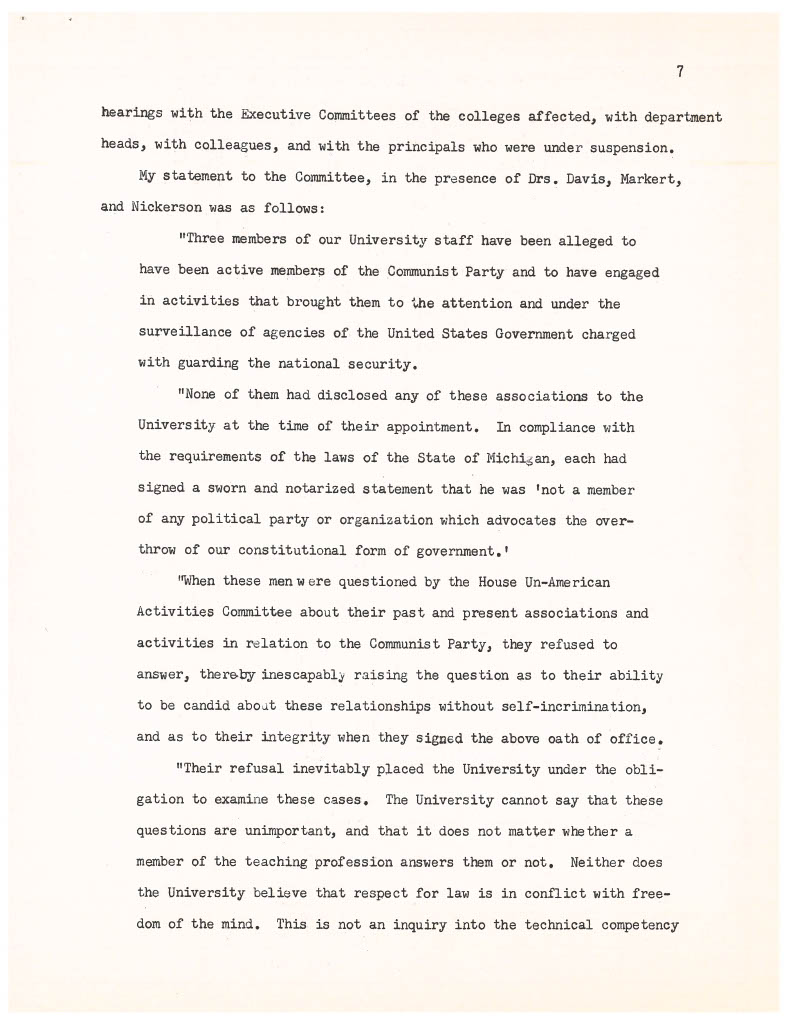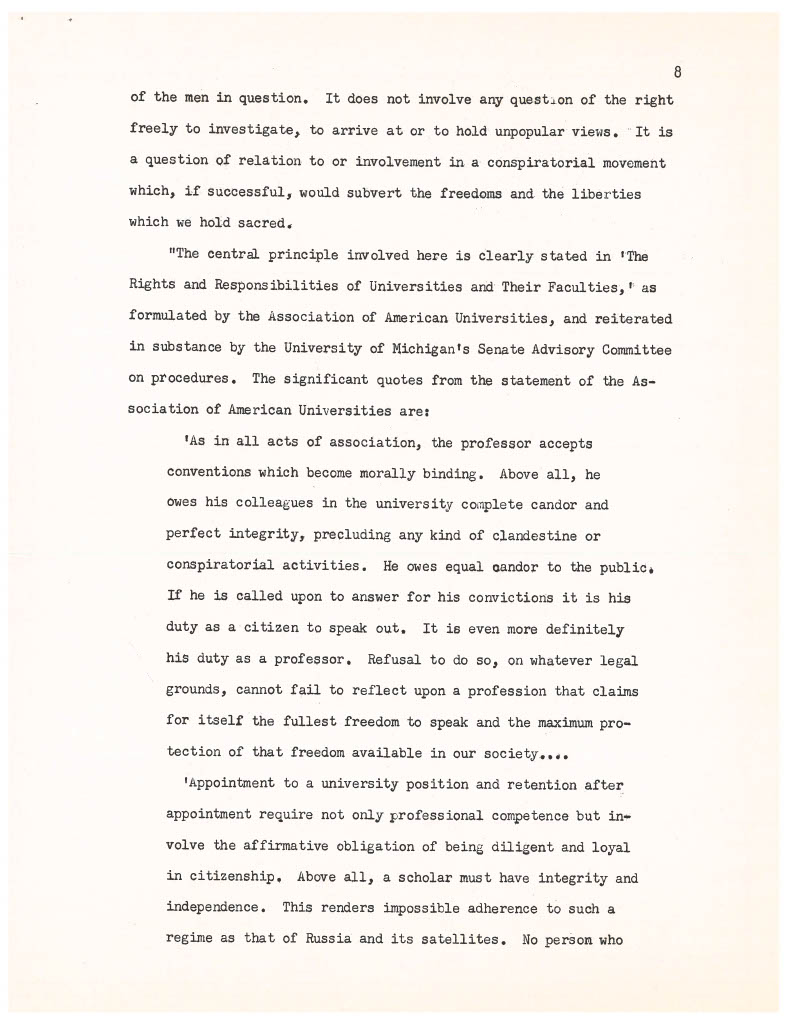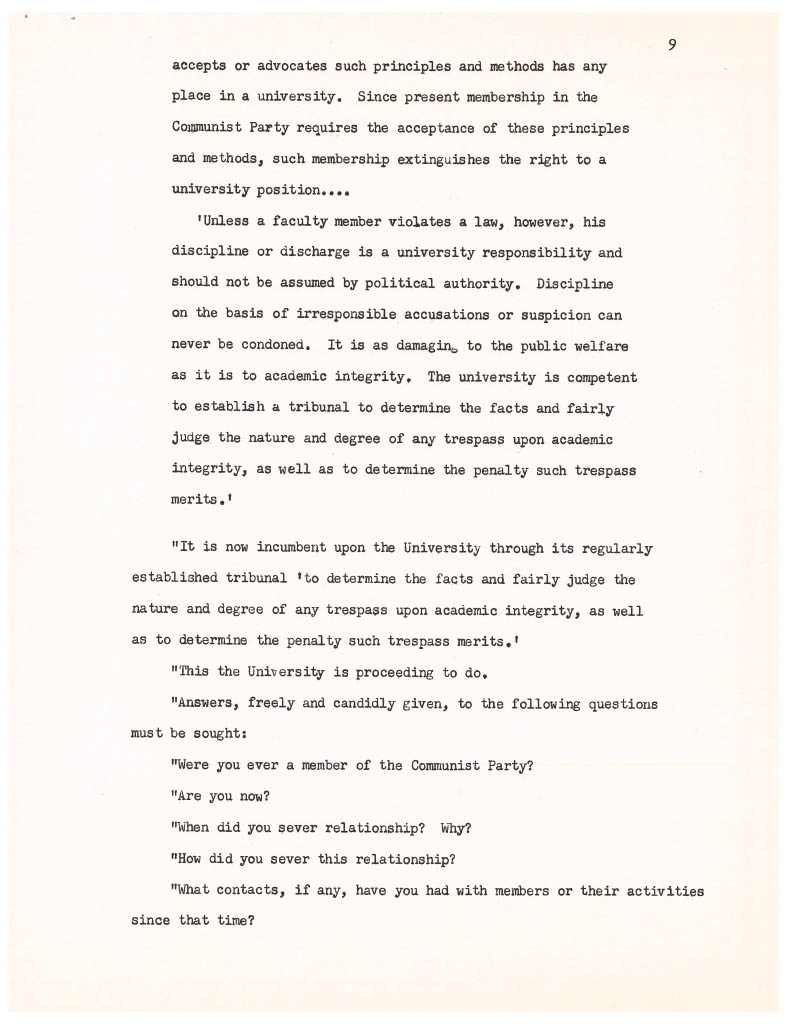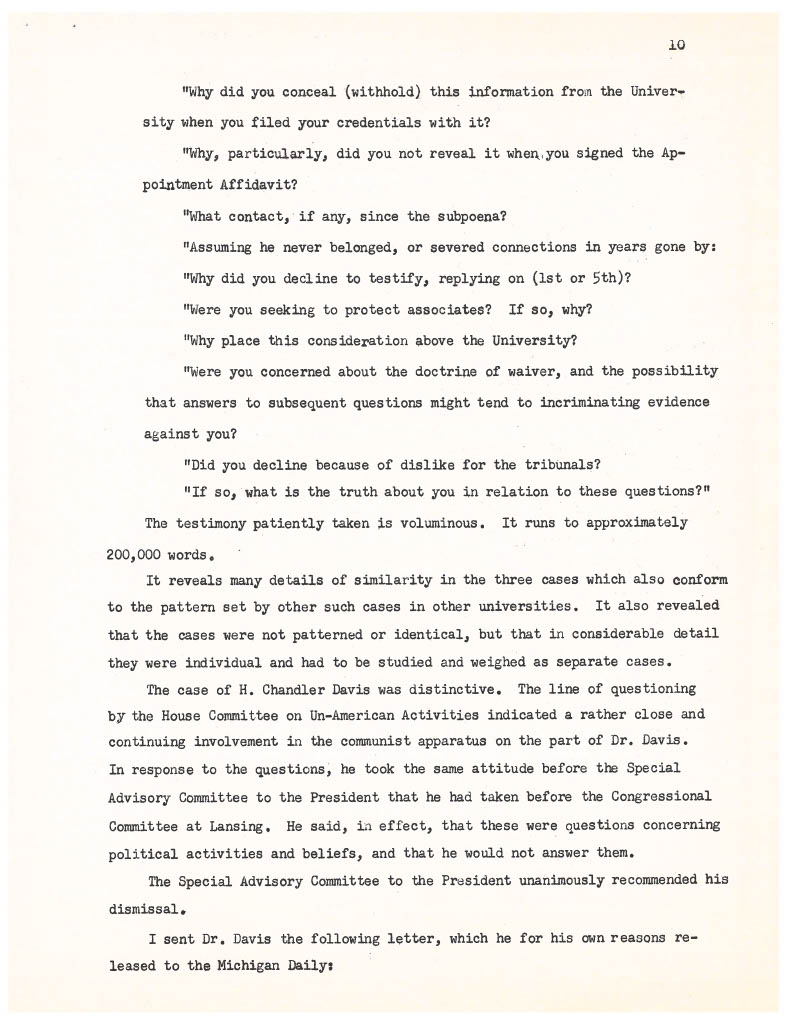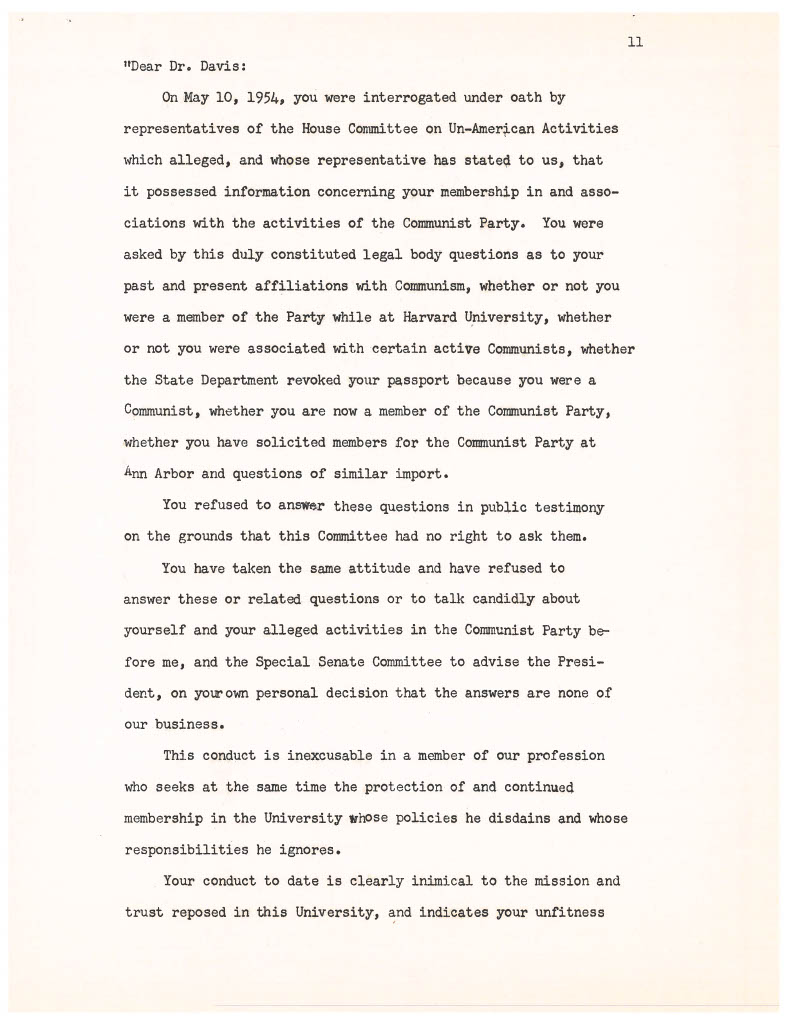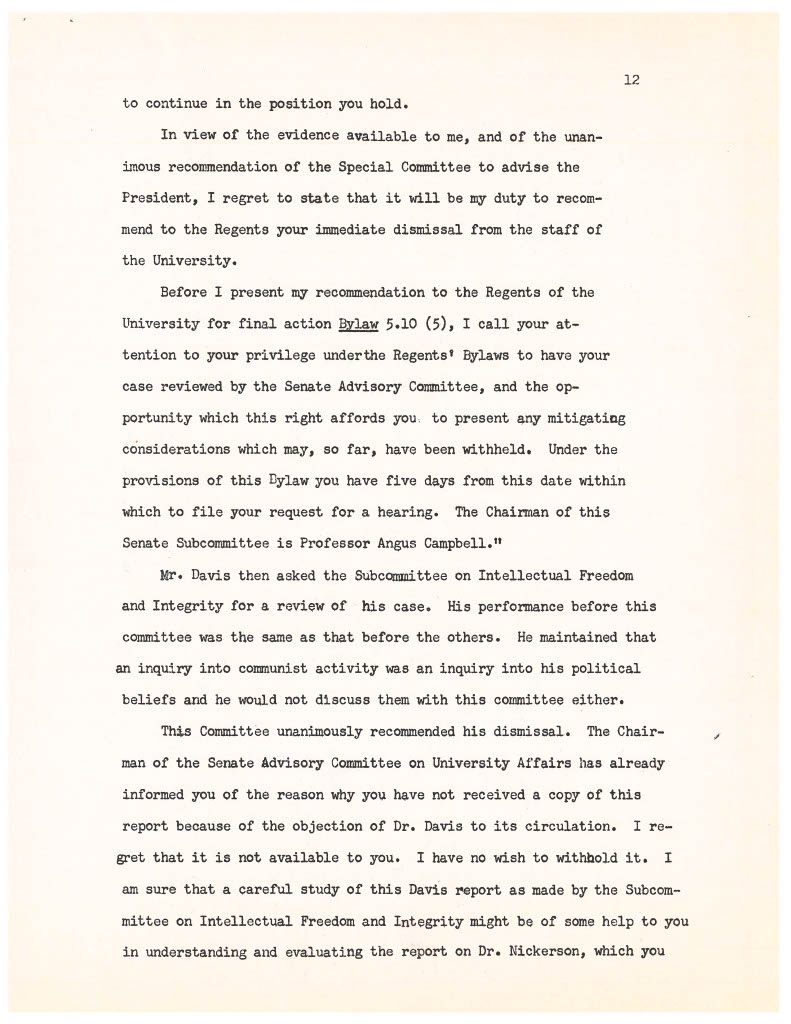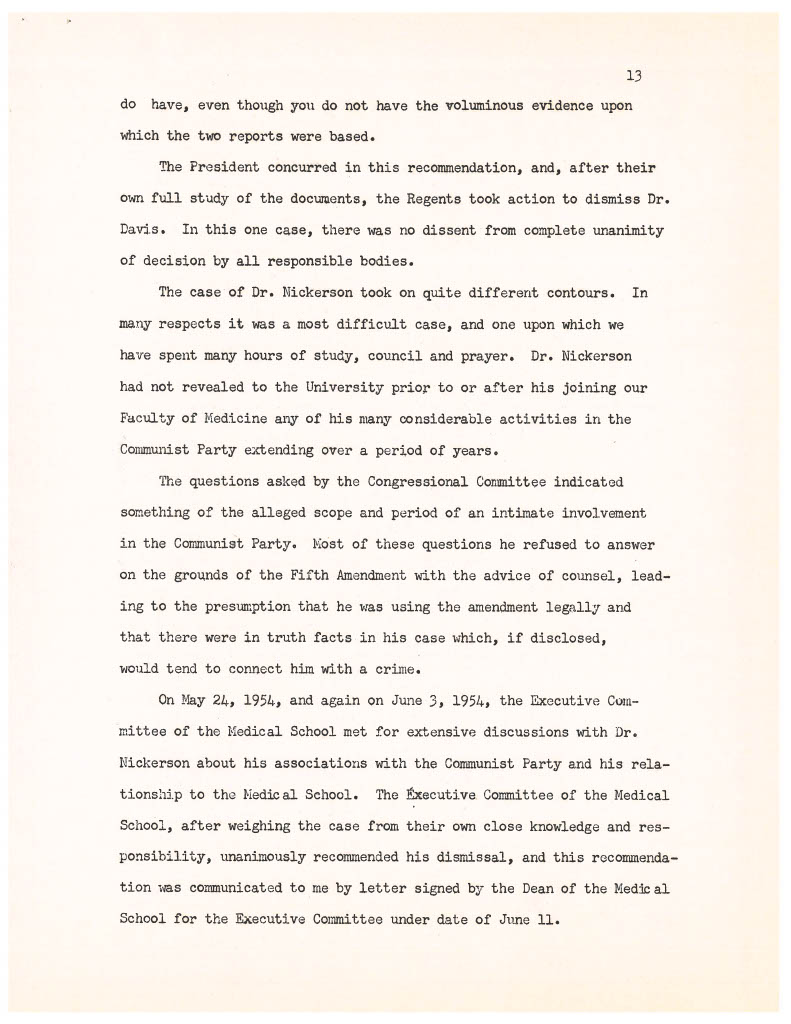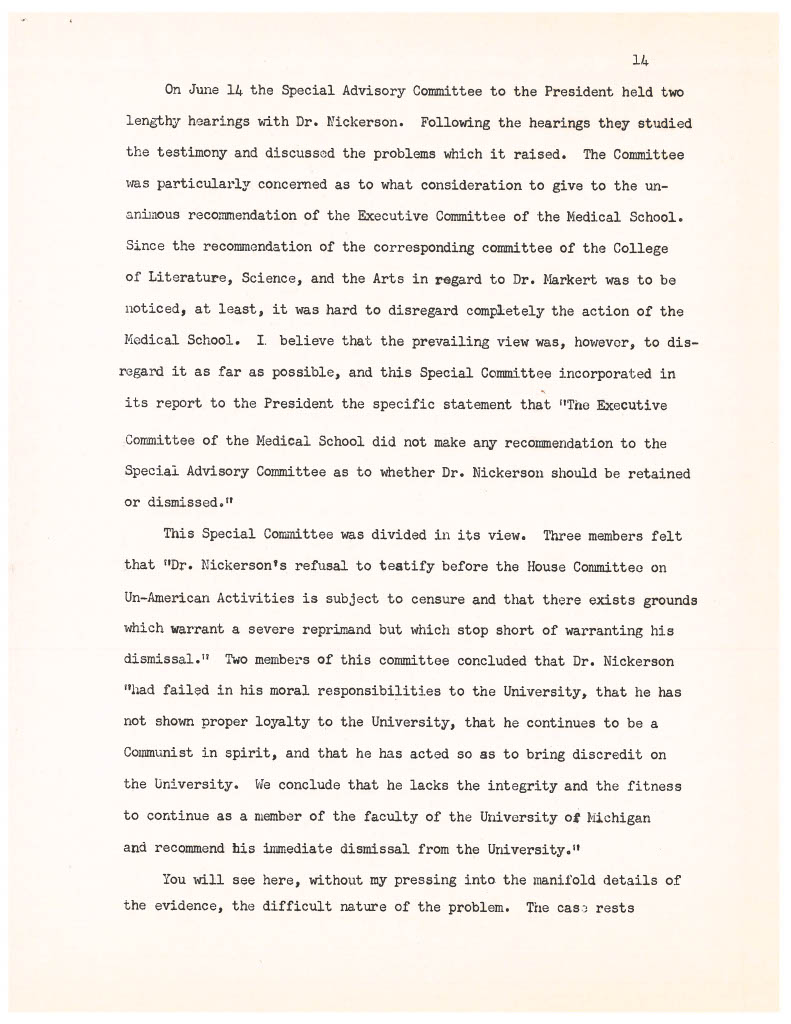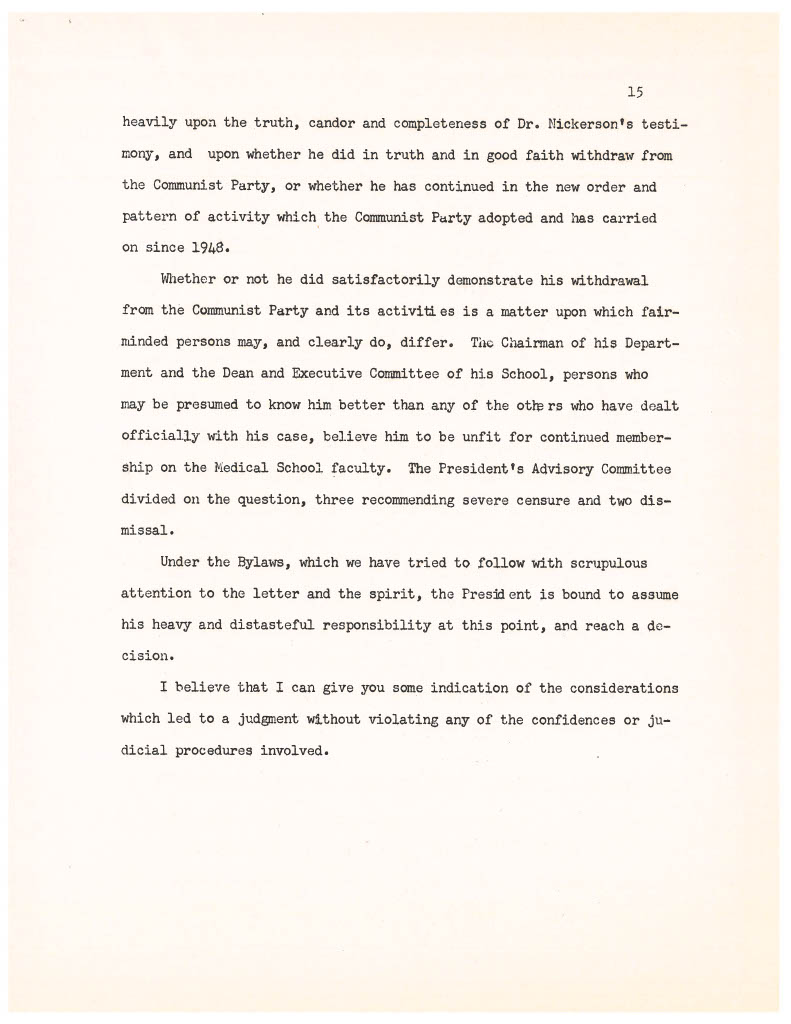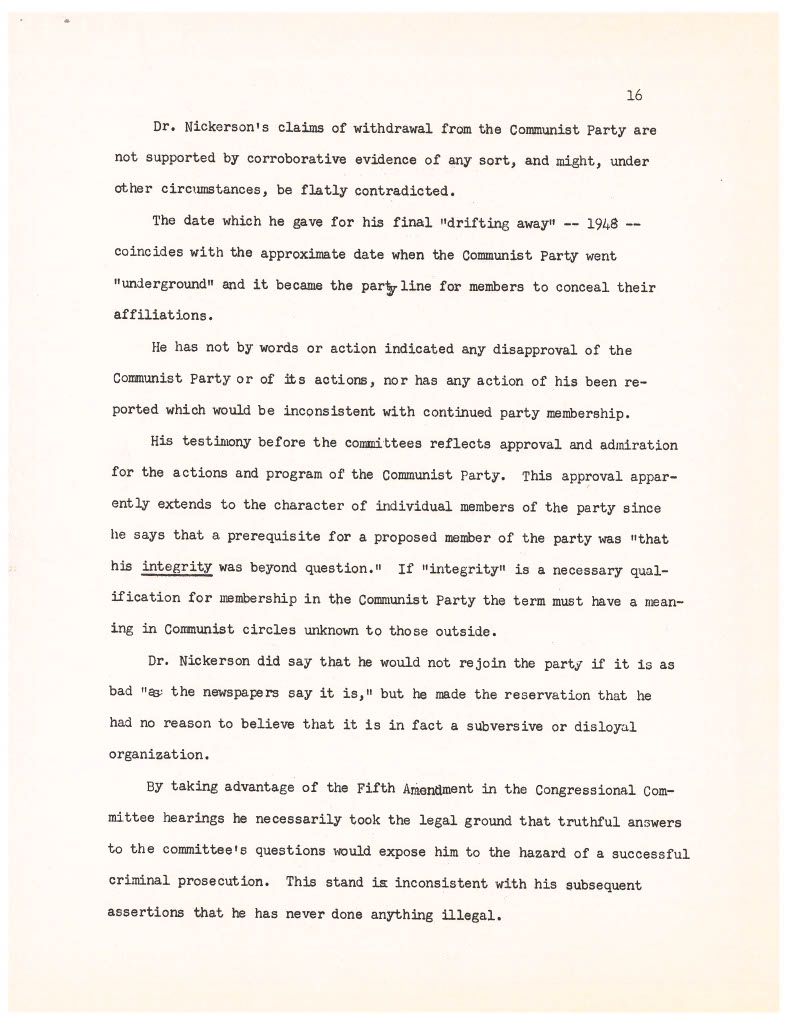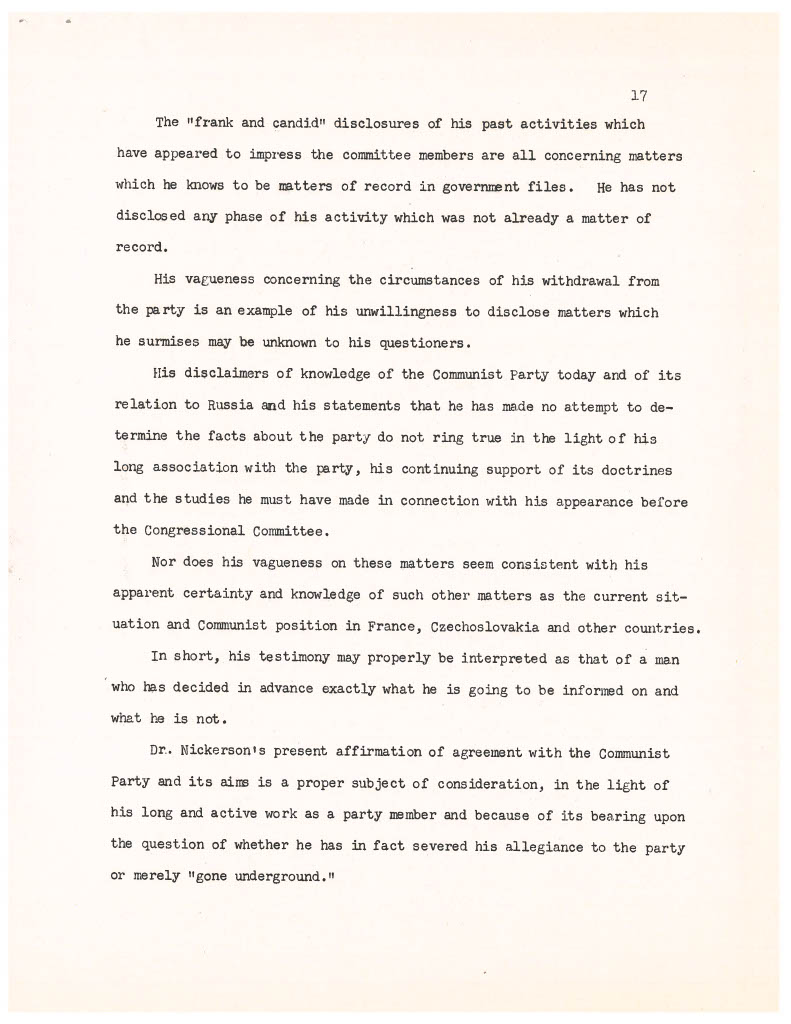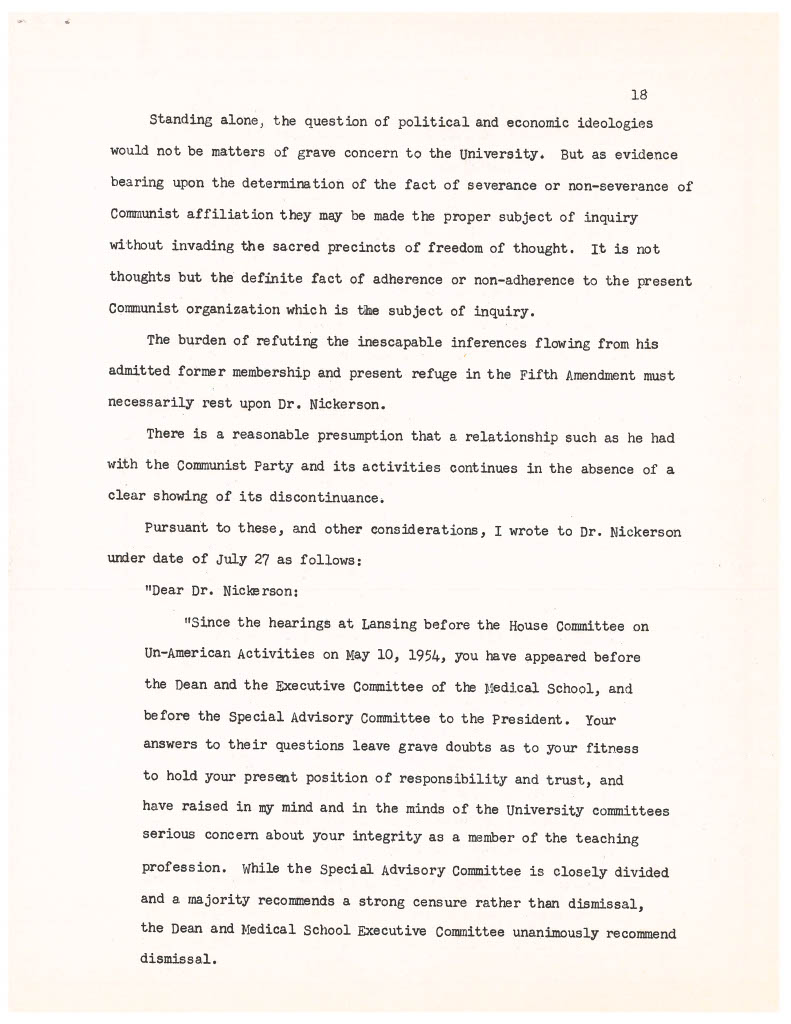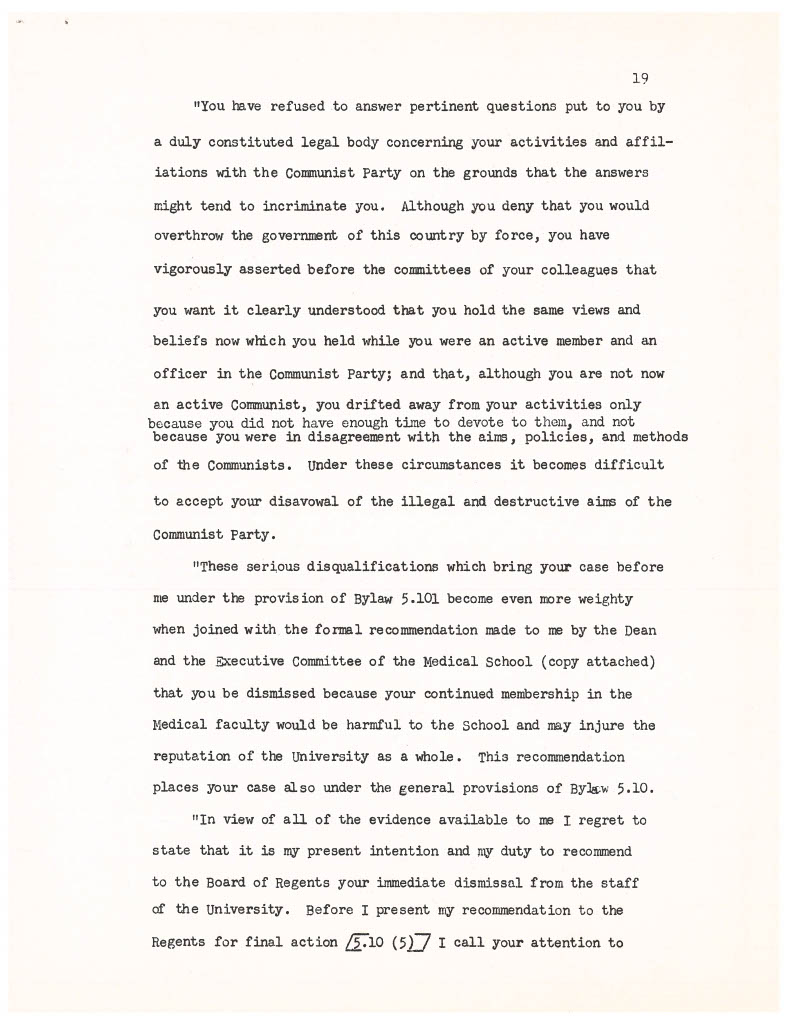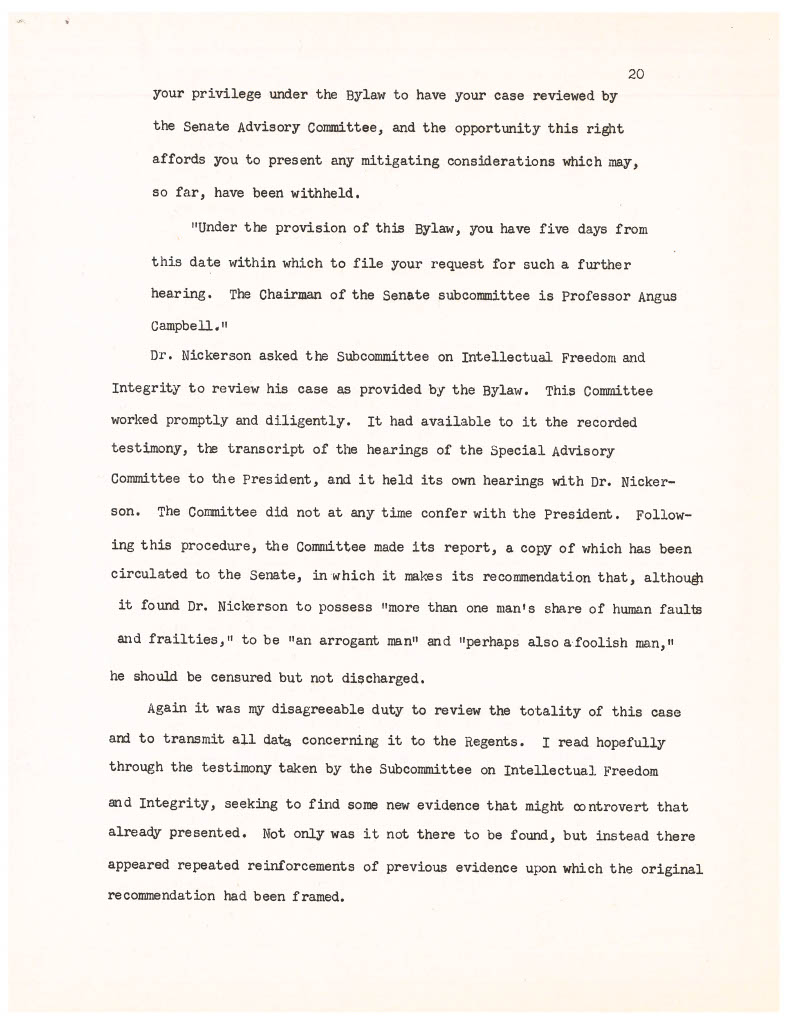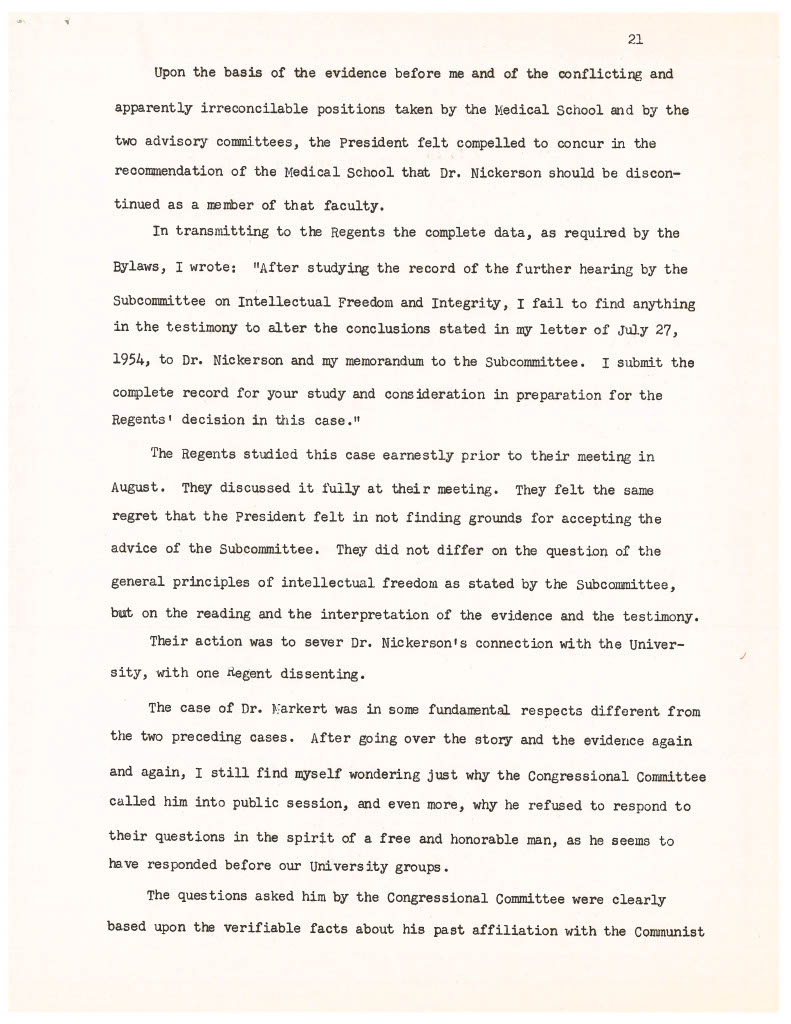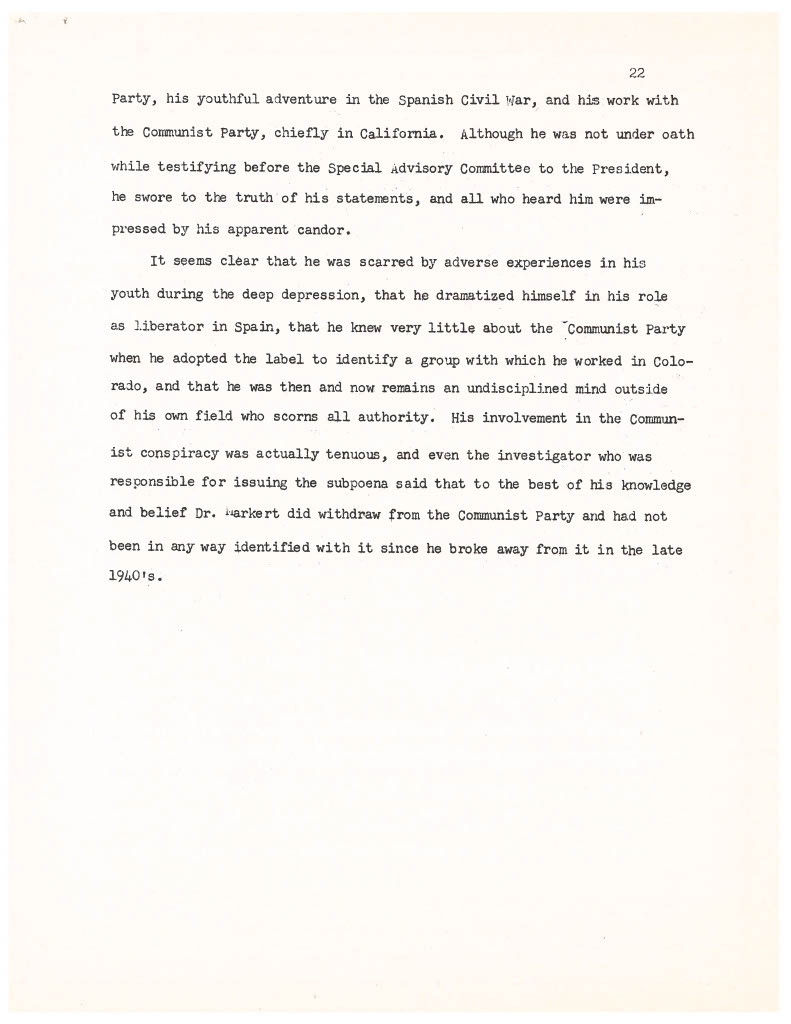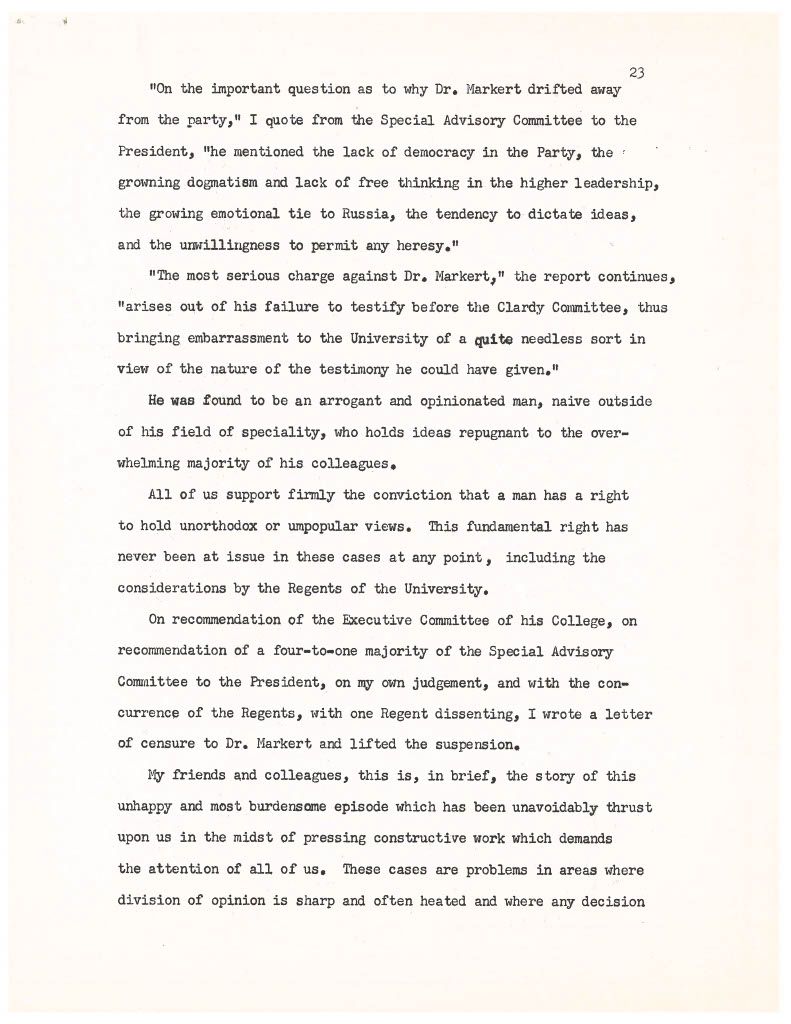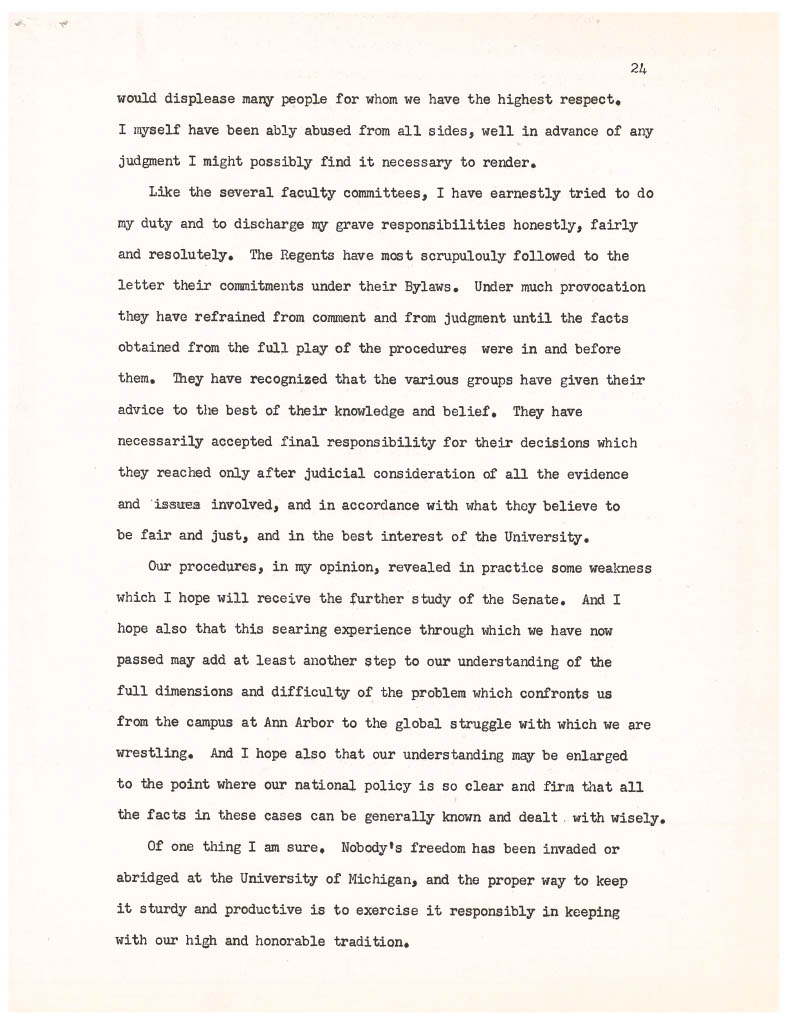
In Honor of Chandler Davis, Clement Markert, and Mark Nickerson
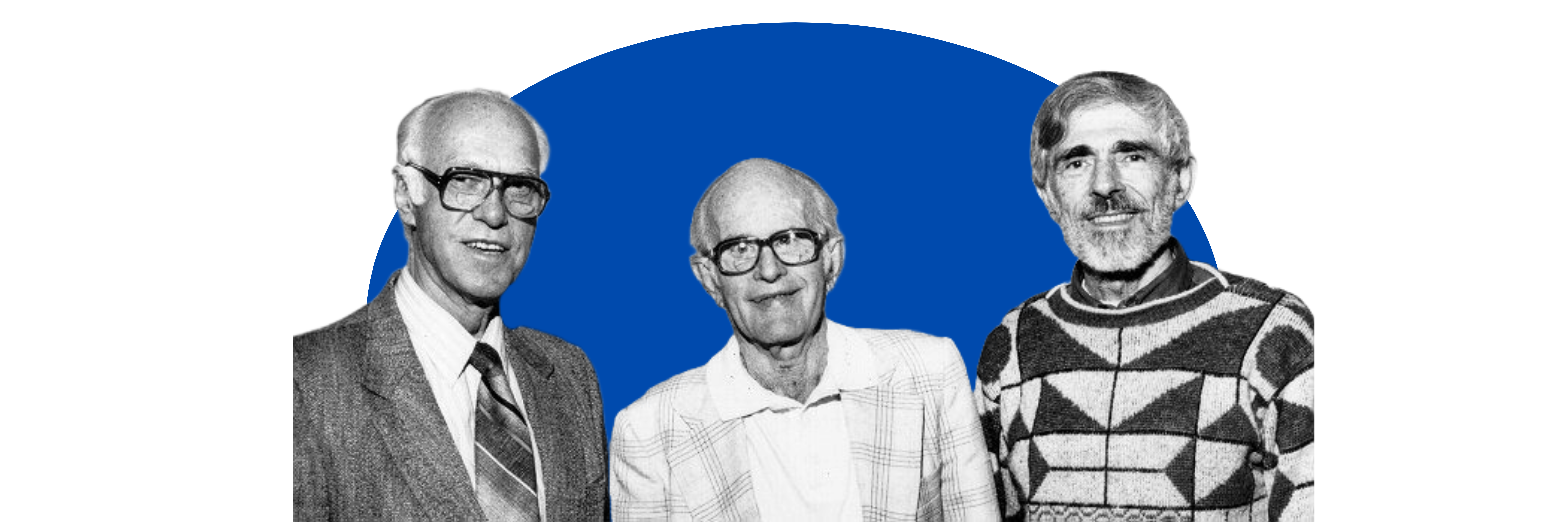
In 1954 the University of Michigan suspended three faculty members for their refusal to give testimony to the U.S. House Committee on UnAmerican Activities. Professors H. Chandler Davis (mathematics) and Mark Nickerson (pharmacology) were fired. The third faculty member, Clement Markert (biology), was retained but censured, and left the university soon afterwards. National AAUP censured the University for these terminations in 1957; censure was removed in 1958 after a new Regents’ Bylaw 5.09 on the “Procedures in cases of Dismissal, Demotion, or Terminal Appointment” was adopted.
The University of Michigan Chapter of the AAUP contacted various University officials to encourage the Regents to take appropriate action to clear the faculty members’ names. A proposal was sent to the Senate Advisory Committee on University Affairs in October 1989, and endorsed in February 1990.
When it became clear that the Regents would not take action, the Senate Assembly in November, 1990, passed a resolution that deeply regretted “the failure of the University Community to protect the values of intellectual freedom” in 1954, and established the annual University of Michigan Senate Davis, Markert, Nickerson Lecture on Academic and Intellectual Freedom.
Senate Assembly Response
ADOPTED NOVEMBER 19, 1990
The faculty of the University of Michigan affirms that academic and intellectual freedom are fundamental values for a university in a free society. They form the foundation of the rights of free inquiry, free expression and free dissent that are necessary for the life of the university. The faculty recognizes that such rights are human creations, the product of both the reasoned actions and the deep-seated commitments of women and men. When such actions and commitments are set in human institutions, people may secure for themselves and for others, in the present and the future, the enjoyment of those rights.
We also recognize that these values and the rights they imply are vulnerable to the fads, fashions, social movements and mass fears that threaten to still dissent and to censure carriers of unpopular ideas. Such was the case in 1954 when the University of Michigan suspended three faculty members and subsequently dismissed two of them. We deeply regret the failure of the University community to protect the fundamental values of intellectual freedom at that time. It is to guard against a repetition of those events and to protect the fundamental freedoms of those who come after us that we make this resolution today.
The protection of academic and intellectual freedoms requires a constant reminder of their value and vulnerability. To provide for that reminder, the faculty of the University of Michigan hereby resolves to establish an Annual Senate Lecture on Academic and on Intellectual Freedom, to be named: The University of Michigan Senate’s Davis, Markert, Nickerson Lecture on Academic and Intellectual Freedom.
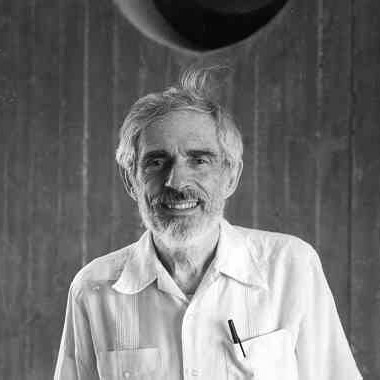
CHANDLER DAVIS
1926-2022
Chandler Davis was well known as a science fiction author in his youth. At the same time he was a mathematics student at Harvard, earning a Ph.D. in 1950. He was an instructor at the University of Michigan, 1950-1954. In 1962, he achieved tenure at the University of Toronto. He was Vice-President of the American Mathematical Society (1991-1994). He also served as an editor of The Mathematical Intelligencer. Professor Davis’s scientific pursuits took him on many travels to Poland during the martial law of 1982; to both the USA and the Democratic Republic of Vietnam while those countries were at war; to China during the Cultural Revolution; to both Israel and the occupied West Bank. Often along with the scientific work he was able to stand up for free speech of scientists (some of whose speech he does not at all endorse). In 1954, while an instructor at the University of Michigan, Chandler Davis was called to testify before the House Committee on Un-American Activities. His fellows on the stand in Lansing were his colleagues Mark Nickerson and Clement L. Markert, and his student friends Edward Shaffer and Myron E. Sharpe. All were “unfriendly witnesses, refusing to confess” their political dissent. Davis, unlike the others, based his refusal to answer only on the First Amendment, waiving his protection under the Fifth Amendment. Thereby he deliberately invited a citation for Contempt of Congress, so as to give him standing to argue in court that the Committee’s proceedings were unconstitutional. He got the citation, all right, but he did not prevail in court; his appeals were exhausted in 1959 and he served prison time in 1960. Meanwhile, he and Professor Nickerson had been dismissed from their positions at the University. This action of the University administration drew censure from the American Association of University Professors. He wrote about those days in “The Purge” (A Century of Mathematics in America, American Mathematical Society, 1989). A selection of his prose writings, not including his mathematics but including some science-fiction is It Walks in Beauty (ed. J.Lukin, Aqueduct Press, 2010).
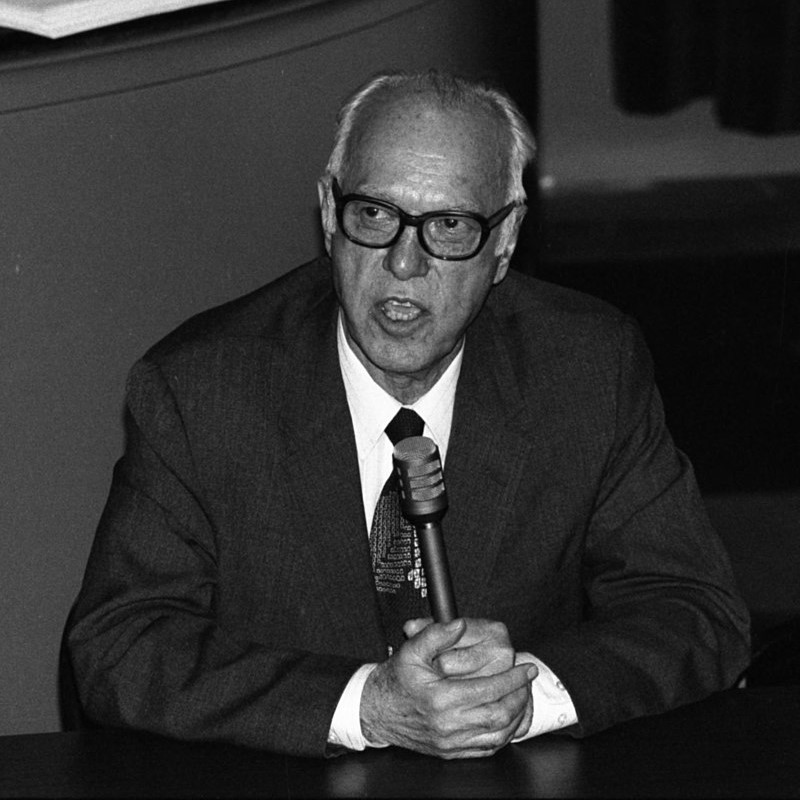
CLEMENT L. MARKERT
1917-1999
Clement L. Markert was Professor of Biology at Johns Hopkins University (1957-1965), the Henry Ford II Professor of Biology and Chair of the Department of Biology at Yale University (1965- 1986) and Distinguished University Research Professor of Animal Science and Genetics at North Carolina State University (1986-1993). His research interests were focused on developmental genetics, reproductive biology, and biotechnology. He was a member of the National Academy of Sciences and served as co-chair of the Developmental Biology Interdisciplinary Cluster for President Ford’s Biomedical Research Panel in 1975. Professor Markert was elected to the Presidency of the American Institute of Biological Sciences, the American Society of Zoologists, the Society for Developmental Biology, and the American Genetics Association. Markert began his academic career as an assistant professor of zoology at the University of Michigan in 1950 after earning his bachelor’s degree from the University of Colorado, his M.A. from the University of California at Los Angeles and his doctorate from Johns Hopkins University. He died on October 1, 1999, in Colorado Springs, Colorado. In 1954, Clement Markert was called to testify before the House UnAmerican Activities Committee. He invoked Constitutional rights according to the Fifth Amendment and refused to answer the Committee’s questions concerning his political associations. Consequently, he was suspended from the University of Michigan. He was later reinstated with the support of the Faculty Senate, his department and his college, and he eventually achieved tenure.
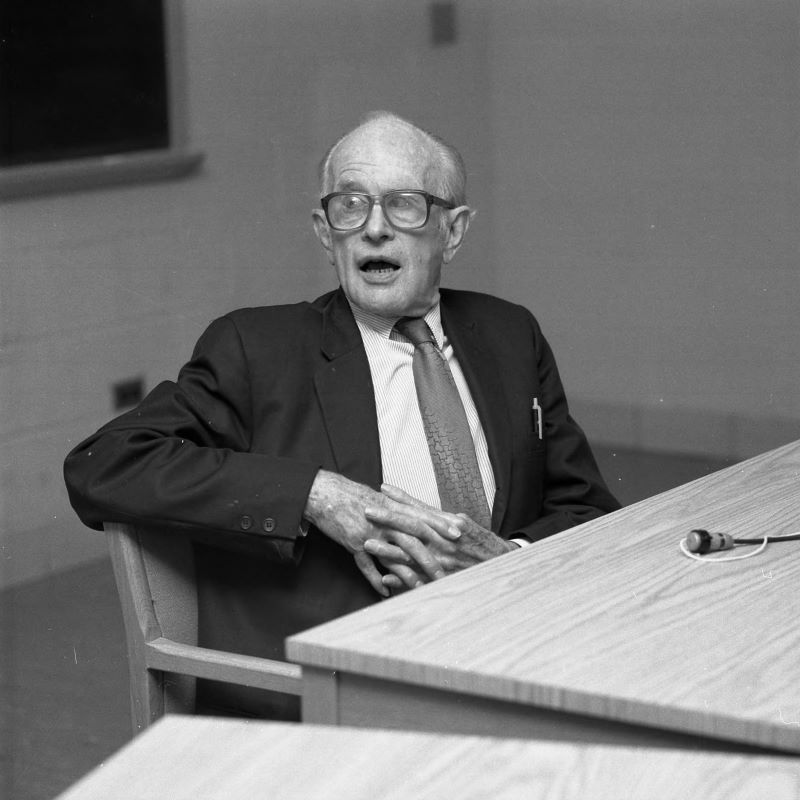
MARK NICKERSON
1916-1998
Professor Nickerson made major contributions to the field of pharmacology, in part through his seminal research on the adrenergic blocking drugs that are used to treat high blood pressure and other major medical disorders. He was awarded the John Jacob Abel Award in Pharmacology in 1949 and served as president both of the Pharmacological Society of Canada and of the American Society for Pharmacology and Experimental Therapeutics. He chaired the Canadian Federation of Biological Sciences and was the author of more than 250 scientific publications. In 1954, Mark Nickerson was an associate professor of pharmacology at the University of Michigan, with tenure. He was called to testify before the House Un-American Activities Committee and chose to invoke the Fifth Amendment in response to the Committee’s questions. He was immediately suspended by the University as a result. Professor Nickerson’s reinstatement was supported by the Faculty Senate but not by his departmental chairman or by the dean and the executive committee of the Medical School. He was subsequently dismissed from the University despite his tenured appointment. Mark Nickerson was born on October 22, 1916, in Montevideo, Minnesota. He graduated summa cum laude from Linfield College, earned his Sc.M. from Brown University, his Ph.D. from Johns Hopkins University and an M.D. from the University of Utah. Nickerson married Elizabeth Ilene Smith (Betty). They had three children, Steven Paul, Michael Thomas and daughter, Marki.

